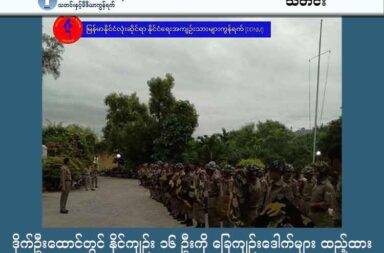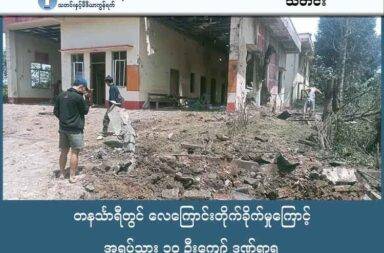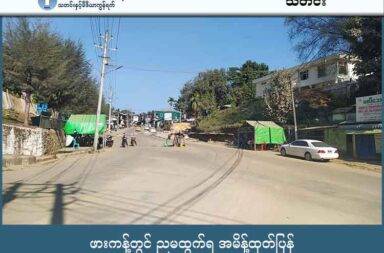Analysis: How Have the Mongla and Wa Regions Avoided Armed Conflict?
Ethnic armed organization leaders weigh in on the current state of affairs in Special Regions 2 and 4.
By NETWORK MEDIA GROUP (NMG)
Wednesday, July 10, 2019
Ethnic armed organization leaders have been weighing in on the current situation in the Wa and Mongla regions, and why the areas have not experienced the same armed conflict as other groups in the country following signing ceasefires with the Burmese government decades ago.
Special Region-2, administered by the United Wa State Army (UWSA) and Special Region-4, run by the National Democratic Alliance Army (NDAA), also known as the Mongla group, signed ceasefire agreements with Burma’s military regime in 1989.
“Since 1989, there have been no clashes between the government forces and our forces. We haven’t shot even a bullet,” Kham Maung, a spokesperson for the NDAA, told NMG, adding that his group also has not had confrontations with other ethnic armed organizations and has taken care of their own security and development. “That’s why our region is stable. Our region has developed within the last 30 years.”
“They set up the right policies. That’s why there are no clashes in their areas,” Padoh Mann Nyein Maung, a central executive committee member of the Karen National Union (KNU) told NMG. “If they don’t have the right policies, they cannot go far in the long term,” he added.
According to ethnic Pa-O patron Col Khun Okker, the Wa and Mongla leaders’ relationships with their neighbors—including Burma and China—have played a role.
“They did not touch the source of power in central Burma. They have been living in their own areas. They didn’t interfere in political affairs,” he said. “At the same time, they have built unity in their inner circles. The situation in neighboring countries was also important. Overall, there has been political stability in the region.”
Lt-Col Sai Mueng of the Restoration Council of Shan State (RCSS) said that Special Region-2 and Special Region-4 have negotiated and built mutual trust, which has allowed them to maintain peace.
Ethnic armed organizations including the Kachin Independence Organization (KIO), the ethnic Kokang Myanmar National Democratic Alliance Army (MNDAA), and the Karenni National Progressive Party all experienced renewed clashes after signing ceasefires with the central government. In the case of the KIO and MNDAA, they refused to transform into Border Guard Forces, as the military demanded, leading to a return to armed conflict.
Government forces have repeatedly fought the KNU and RCSS, even though they both signed the Nationwide Ceasefire Agreement (NCA) in 2015.
The UWSA is currently demanding that the Burmese government promote their administrative region in Shan State—of Hopang, Mong Mao, Pang Wai, Nerphan, Mek Meng and Panghsang—to that of a state. The NDAA meanwhile, is asking for greater autonomy for their own area, which includes Mongla, Ner Pang, and Seelu in Shan State.


